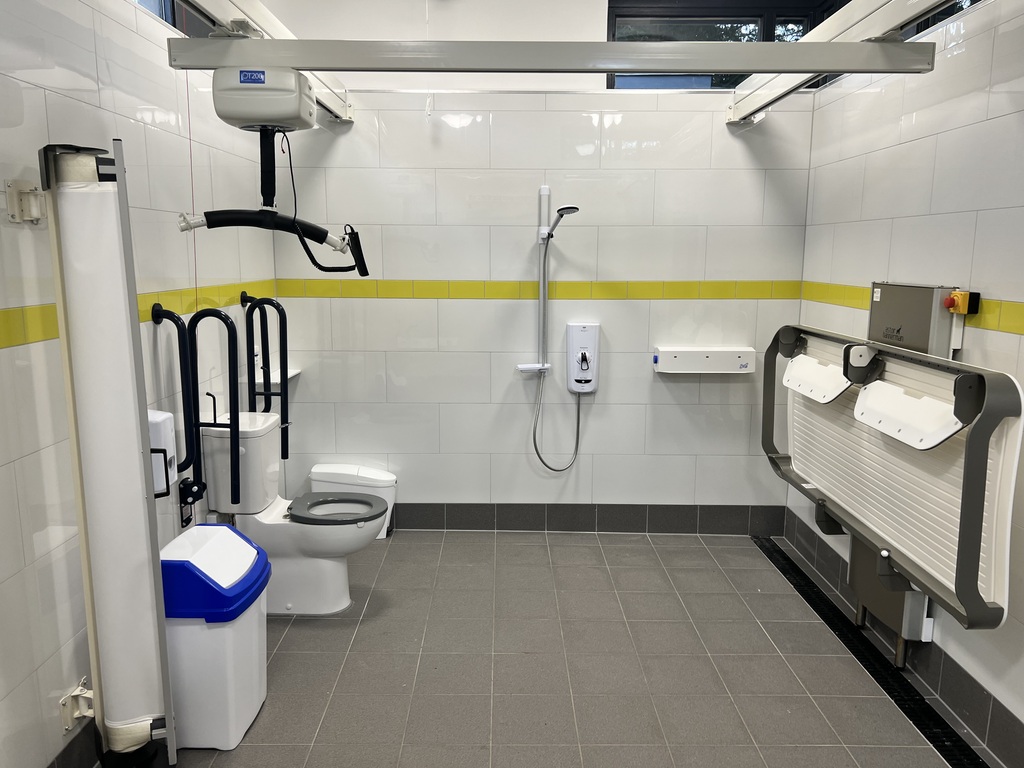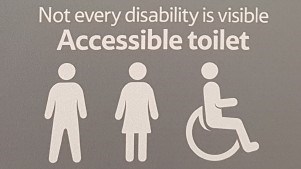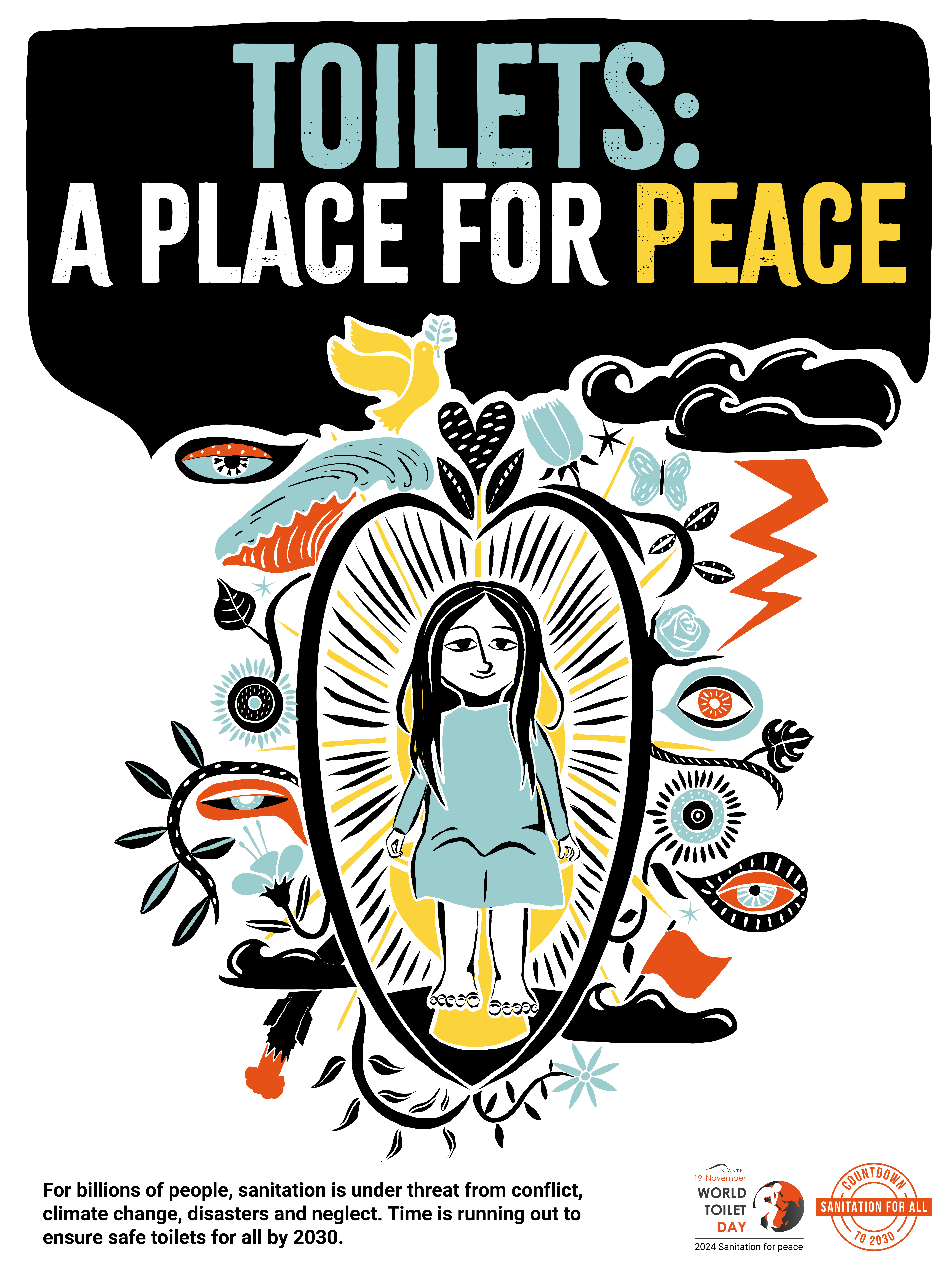All Articles
3 min read
World Toilet Day 2024: A Call for Accessible, Safe Toilets

Written by
Purpl
Published on
November 19, 2024
This year, World Toilet Day 2024 focuses on the theme “Sanitation for Peace,” highlighting the vital role that safe, accessible sanitation plays in fostering peace and security. Toilets are essential places of comfort and privacy, spaces where we feel safe. Yet, 3.5 billion people still live without safely managed sanitation and access to this most basic human need is compromised.
While this global sanitation crisis affects people everywhere, there is a growing call to ensure that safe and accessible toilets are available for all communities, including those with disabilities. For disabled people, lack of accessible toilets continues to limit opportunities for full participation in daily life. World Toilet Day 2024 provides a moment to reflect on how equitable sanitation can promote a more peaceful, fairer society, particularly for disabled people.

Accessible Toilets
Accessibility for disabled people remains an area needing urgent attention. Many public toilets across Britain are still not adequately equipped for people with disabilities, lacking essential features such as handrails, accessible doorways, or space for caregivers. This lack of accessible facilities is not just an inconvenience; it can severely limit the daily activities of people with disabilities, affecting their ability to participate in public life, access employment, and enjoy leisure activities.
The lack of accessible toilets in public spaces often leads to “toilet anxiety” for many disabled people, as they worry about where they can find a suitable bathroom when they are out and about. Inaccessible sanitation can isolate people, making it difficult for them to engage with their communities and live with independence and dignity. Addressing this issue is essential for creating a fairer, more inclusive society where everyone can participate fully.
Changing Places
Changing Places toilets are essential facilities designed to meet the needs of disabled people who require more space and specialised equipment than standard accessible toilets can provide. These toilets feature height-adjustable changing benches, hoists, and enough room for a disabled person and up to two carers to move around safely and comfortably. Crucially, they also include non-slip floors, privacy screens, and appropriately placed support rails to ensure dignity and ease of use.
For many individuals with profound and multiple disabilities, as well as their carers, Changing Places toilets make a significant difference by enabling them to access public spaces and enjoy activities without being confined by inadequate facilities. With over 1,000 Changing Places locations now available across the UK, they are a vital step towards inclusion and equality for all.

Not Every Disability is Visible
Access to toilets is important for everyone, and lots of people need to use accessible toilets for many reasons, not just wheelchair users. As well as working for Purpl, I am also a blogger and a disability activist, I live with an ileostomy and with Inflammatory Bowel Disease and so toilets are a big part of my life. In 2015, I wrote a letter on my blog about being judged for using an accessible toilet when I have an invisible condition, it was called ‘Dear lady who loudly tutted at me for using the disabled loos…’ This post went viral around the world and it inspired many campaigns including the ‘not every disability is visible’ campaign, that led to signs with this caption being on toilets all over the UK.

How Accessible Toilets Contribute to Peace and Equity
For disabled people, accessible sanitation is not just about hygiene; it’s about dignity, freedom, and equality. When communities provide safe, accessible toilets, they remove a significant barrier for disabled people, enabling them to lead fuller, more independent lives. This, in turn, fosters a sense of security and inclusion, promoting peace at both the individual and societal levels.
In the context of “Sanitation for Peace,” accessible toilets can play a role in reducing inequality and building trust within communities. When everyone’s basic needs are met, societies become more equitable, and people are better able to participate in building peaceful, supportive environments. An inclusive approach to sanitation aligns with the larger goals of peace and security, ensuring that people from all backgrounds can live with respect and autonomy.
For more information, head over to the World Toilet Day website here.

Related Articles
Practical Tips for Managing your Bladder Weakness
3 Ways to Improve your Bladder Health with Jude
Not Every Disability is Visible – Applying for a Disabled ID (DID) Card
